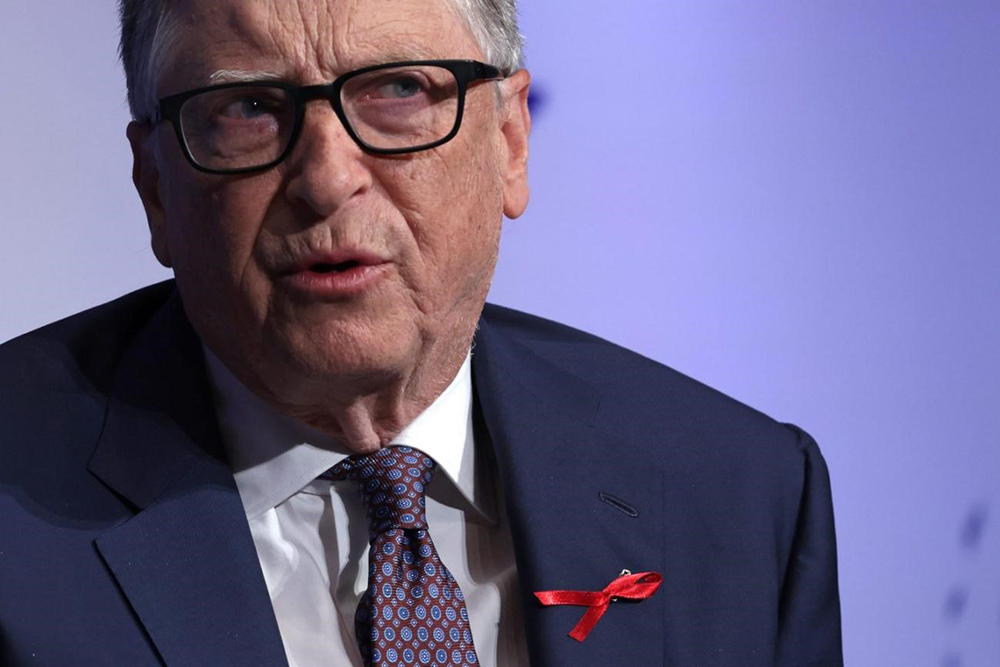
众所周知,微软公司(Microsoft)的联合创始人比尔·盖茨长期看好人工智能及其能够帮助实现创新加速的前景。他认为诸如OpenAI的ChatGPT聊天机器人之类的人工智能工具是两项真正具有革命性的技术之一(另一个例子是图形用户界面,即计算领域的数字图标和按钮)。
现在,盖茨表示“人工智能时代已经开启”,人工智能不仅可以提高生产力,还有助于解决不平等等社会问题。他认为,如果政府和慈善机构能够推出正确的政策,将资金投入到最亟需的地方,这项技术就可以帮助医疗和教育不足的国家释放资源,改善人们获得医疗和教育的机会。
“我一直在思考人工智能可以如何减少全球最严重的不平等现象。”盖茨于3月21日在一篇博文中说道。“首先,它们能够用来完成提交保险索赔、处理文书、起草医生的来访记录等工作任务,从而帮助医疗工作者最大化利用自己的时间。”
盖茨指出,许多发展中国家难以招收到足够多的医生,往往进一步加剧了富人和弱势群体之间的不平等。他说,如果每一位医疗从业人员都能够使用人工智能工具,更好地为患者提供关于最优方案的建议,就能够为更多有需要的人服务。同时,在教育领域,人工智能可以协助训练学生,让他们在考试中拿到更高的分数。
盖茨指出,建立这样的系统需要多年的测试和政府、慈善机构和企业的不懈努力,才能够使人工智能成为解决方案的一部分,而不是使问题恶化。只有这样,才可以让所有人受益,而不仅仅是用得起这些技术的富人。
“政府和慈善机构需要发挥重要作用,确保它能够减少不平等,而不是加剧不平等。这是我自己在开展人工智能相关工作时的优先事项。”盖茨表示。
人工智能具有解决影响整个国家和整个群体的问题的潜力,但相伴而生的是人工智能自身的威胁,盖茨承认,这项技术仍然存在局限性。
“人们需要看到证据,证明健康领域的人工智能总体上是有益的,尽管它们并不完美,还会犯错误。”盖茨说,“这些人工智能必须经过非常仔细的测试,得到合理的监管,这就意味着相较于其他领域,在应用前需要经过更多的时间。”
他指出,人工智能有时会出错,会让人恍惚,它们会返回不准确或虚构的信息,如果掌握在错误的人手中,可能就会因为滥用而构成威胁。当然,人工智能自身也可能失控,成为人类的威胁。
尽管存在这些风险,盖茨仍然认为人工智能技术潜力巨大。
“整个行业都将围绕它重新定位。企业将因为能否出色使用人工智能而产生区分。”他表示。
这位亿万富翁慈善家长期支持人工智能,主张人工智能的好处远大于威胁。首先,他不认为人工智能会对就业构成威胁。他说,如果说有什么区别的话,那就是人工智能可以通过提高效率来改善人们的工作方式。
作为半个世纪前助力发起计算机革命(这场革命也同样引发了人们对就业机会减少的类似担忧)的人,盖茨称,人工智能的发展“和个人电脑、互联网一样重要”。今年早些时候,在Reddit的Ask Me Anything会议上,他盛赞人工智能是一种“让人看到未来”的工具。
盖茨表示,人们对任何革命性技术都会产生担忧,这很正常,但他补充道,人工智能只是其中的一个例子,可以用它来实现真正的改变。(财富中文网)
译者:Agatha
众所周知,微软公司(Microsoft)的联合创始人比尔·盖茨长期看好人工智能及其能够帮助实现创新加速的前景。他认为诸如OpenAI的ChatGPT聊天机器人之类的人工智能工具是两项真正具有革命性的技术之一(另一个例子是图形用户界面,即计算领域的数字图标和按钮)。
现在,盖茨表示“人工智能时代已经开启”,人工智能不仅可以提高生产力,还有助于解决不平等等社会问题。他认为,如果政府和慈善机构能够推出正确的政策,将资金投入到最亟需的地方,这项技术就可以帮助医疗和教育不足的国家释放资源,改善人们获得医疗和教育的机会。
“我一直在思考人工智能可以如何减少全球最严重的不平等现象。”盖茨于3月21日在一篇博文中说道。“首先,它们能够用来完成提交保险索赔、处理文书、起草医生的来访记录等工作任务,从而帮助医疗工作者最大化利用自己的时间。”
盖茨指出,许多发展中国家难以招收到足够多的医生,往往进一步加剧了富人和弱势群体之间的不平等。他说,如果每一位医疗从业人员都能够使用人工智能工具,更好地为患者提供关于最优方案的建议,就能够为更多有需要的人服务。同时,在教育领域,人工智能可以协助训练学生,让他们在考试中拿到更高的分数。
盖茨指出,建立这样的系统需要多年的测试和政府、慈善机构和企业的不懈努力,才能够使人工智能成为解决方案的一部分,而不是使问题恶化。只有这样,才可以让所有人受益,而不仅仅是用得起这些技术的富人。
“政府和慈善机构需要发挥重要作用,确保它能够减少不平等,而不是加剧不平等。这是我自己在开展人工智能相关工作时的优先事项。”盖茨表示。
人工智能具有解决影响整个国家和整个群体的问题的潜力,但相伴而生的是人工智能自身的威胁,盖茨承认,这项技术仍然存在局限性。
“人们需要看到证据,证明健康领域的人工智能总体上是有益的,尽管它们并不完美,还会犯错误。”盖茨说,“这些人工智能必须经过非常仔细的测试,得到合理的监管,这就意味着相较于其他领域,在应用前需要经过更多的时间。”
他指出,人工智能有时会出错,会让人恍惚,它们会返回不准确或虚构的信息,如果掌握在错误的人手中,可能就会因为滥用而构成威胁。当然,人工智能自身也可能失控,成为人类的威胁。
尽管存在这些风险,盖茨仍然认为人工智能技术潜力巨大。
“整个行业都将围绕它重新定位。企业将因为能否出色使用人工智能而产生区分。”他表示。
这位亿万富翁慈善家长期支持人工智能,主张人工智能的好处远大于威胁。首先,他不认为人工智能会对就业构成威胁。他说,如果说有什么区别的话,那就是人工智能可以通过提高效率来改善人们的工作方式。
作为半个世纪前助力发起计算机革命(这场革命也同样引发了人们对就业机会减少的类似担忧)的人,盖茨称,人工智能的发展“和个人电脑、互联网一样重要”。今年早些时候,在Reddit的Ask Me Anything会议上,他盛赞人工智能是一种“让人看到未来”的工具。
盖茨表示,人们对任何革命性技术都会产生担忧,这很正常,但他补充道,人工智能只是其中的一个例子,可以用它来实现真正的改变。(财富中文网)
译者:Agatha
Microsoft co-founder Bill Gates is famously optimistic about artificial intelligence and its promise to speed up innovation. He considers A.I. tools such as OpenAI’s ChatGPT chatbot to be one of two technologies that have been truly revolutionary (the other example was with graphic user interface, or digital icons and buttons, in computing).
Now Gates says the “age of A.I. has begun” and that it will not just improve productivity but also help fix societal problems like inequity. He thinks the technology can free resources and improve access to healthcare and education in countries that lack it if governments and philanthropies introduce the right policies and direct funds where they are most needed.
“I’ve been thinking a lot about how A.I. can reduce some of the world’s worst inequities,” Gates wrote in a blog post on March 21. “For one thing, they’ll help health-care workers make the most of their time by taking care of certain tasks for them—things like filing insurance claims, dealing with paperwork, and drafting notes from a doctor’s visit.”
Gates pointed out that a number of developing countries struggle with attracting enough doctors, which often worsens inequities between the wealthy and the disadvantaged. If every healthcare professional has access to A.I. tools to better advise patients on the best course of action, a lot more people in need can be served, he says. Meanwhile, in education, A.I. can assist with training students and help them get higher test scores.
Instituting such systems would take years of testing and persistent efforts by governments, philanthropies, and businesses for the A.I. to be part of the solution instead of worsening the problem, Gates said. In that way, the benefits would be accessible to all and not just the well-off who can afford to use such technologies.
“Governments and philanthropy will need to play a major role in ensuring that it reduces inequity and doesn’t contribute to it. This is the priority for my own work related to A.I.,” Gates wrote.
The potential of A.I. to solve problems affecting entire countries and communities comes with its own set of threats, and Gates acknowledges the technology is still limited.
“People will need to see evidence that health A.I.s are beneficial overall, even though they won’t be perfect and will make mistakes,” Gates wrote. “A.I.s have to be tested very carefully and properly regulated, which means it will take longer for them to be adopted than in other areas.”
A.I. can sometimes fumble or hallucinate by returning inaccurate or fictitious information and becoming a threat in the hands of wrong people who misuse it, he said. Then, of course, there is the possibility of A.I. running amok and becoming a threat to humans.
Despite these risks, Gates still thinks A.I. technology has great potential.
“Entire industries will reorient around it. Businesses will distinguish themselves by how well they use it,” he wrote.
The billionaire philanthropist has long supported A.I. and advocated that its benefits far outweigh its dangers. For one, he doesn’t see A.I. as a threat to jobs. If anything, it could improve how people work by increasing efficiency, he says.
As the person who helped to start a computer revolution half a century ago, which also sparked similar concerns about killing jobs, he said A.I. ‘s development is “every bit as important as the PC, as the internet.” Earlier this year, during a Reddit Ask Me Anything session, he touted A.I. as a tool that “gives a glimpse of what is to come.”
It’s normal for people to raise concerns about any revolutionary technology, Gates said, but he added that A.I. is just one such example and that it can be used to accomplish real change.






